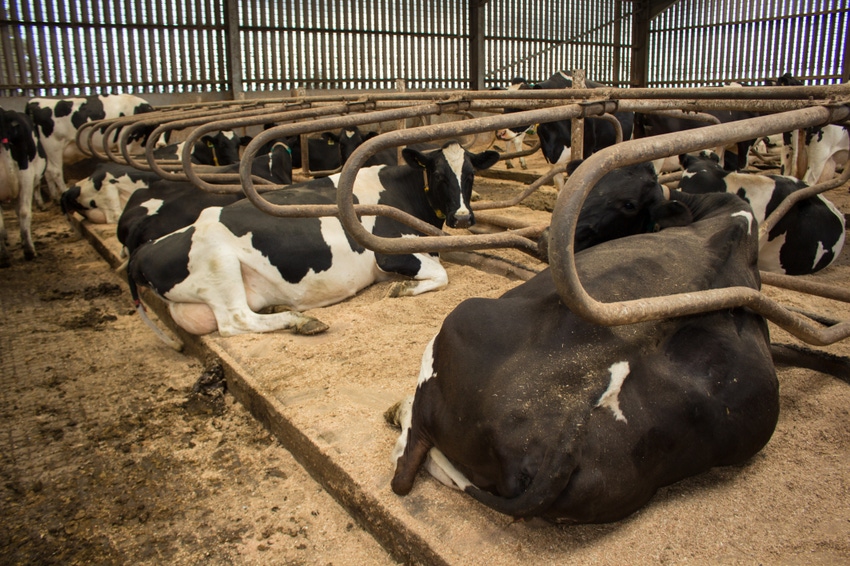Study cows took longer to recover from lying deprivation than lost sleep.

Management factors in dairy freestall barns influence cow behaviors, and researchers recently examined the effects of sleep or lying deprivation on dairy cow behavior.
Publishing their study in PLOS One, researchers Jessie A. Kull, Gina M. Pighetti and Peter D. Krawczel of The University of Tennessee; Katy L. Proudfoot of The Ohio State University; Jeffery M. Bewley of Alltech Inc., and Bruce F. O’Hara and Kevin D. Donohue of the University of Kentucky collected data from eight multiparous and four primiparous cows, which were initially at about 199 days in milk and 77 days pregnant.
Kull et al. used a crossover design in which each cow experienced: (1) sleep deprivation implemented by noise or physical contact when their posture suggested sleep, and (2) lying deprivation imposed by a grid placed on the pen floor.
According to the researchers, each cow was exposed to a 12-day study cycle in which one day before treatment (baseline, day -1) and the treatment day (day 0) were followed by a 12-day washout period, with the first seven days used to evaluate recovery.
During habituation (days -3 and -2 before treatment), baseline and treatment, housing was individual box stalls (mattress with no bedding), Kull et al. noted. After treatment, cows returned to sand-bedded freestalls for a seven-day recovery period (days 1-7), when data on lying behaviors were collected. Following the recovery period, an additional five-day period was provided to allow the cows a 12-day period between exposures to treatments, the researchers added.
Daily lying time, number of lying bouts, bout duration and number of steps were recorded by data loggers attached to the hind leg of cows throughout the study period.
According to Kull et al., interactions between treatment and day were detected for daily lying time and the number of bouts. Lying time was lower for both treatments during the treatment period compared to baseline, the researchers said, and lying time increased during the recovery period for both lying-deprived and sleep-deprived cows.
However, it took four days for the lying-deprived cows to fully recover their lying time after treatment, whereas it took the sleep-deprived cows two days for their lying time to return to baseline levels, Kull et al. explained.
The researchers concluded that deprivation of both sleep and lying time can affect cow behavior. Management factors that limit cow's access to freestalls may likely reduce lying time and sleep, causing negative welfare implications for dairy cows, Kull et al. suggested.
About the Author(s)
You May Also Like
.png?width=300&auto=webp&quality=80&disable=upscale)


